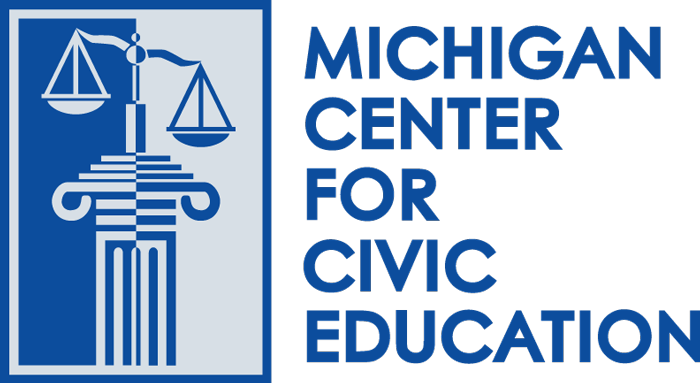This case summary provides teachers with everything they need to teach about New Jersey v. T.L.O. (1985). It contains background information in the form of summaries and important vocabulary at three different reading levels, as well a review of relevant legal concepts, diagram of how the case moved through the court system, and summary of the decision. This resource also includes seven classroom-ready activities that teach about the case using interactive methods.
Civics Lessons
New Jersey v. T.L.O. (1985)
Constitution Day Lesson 14th Amendment
The goal of this activity is to introduce 8th grade students to the Fourteenth Amendment of the U. S. Constitution (equal protection under the law).
I Can’t Wear What??
Students meet Ben Brewer and find out what happened the day he decided to wear his favorite band t-shirt to school in violation of a new dress code rule. Students read a summary of a Supreme Court case to figure out the “rule” that applies to Ben’s problem. This lesson lays the groundwork for students to write two short persuasive essays—one arguing each side of the issue.
Korematsu v. United States (1944)
This case summary provides teachers with everything they need to teach about Korematsu v. United States (1944). It contains background information in the form of summaries and important vocabulary at three different reading levels, as well a review of relevant legal concepts, diagram of how the case moved through the court system, and summary of the decision. This resource also includes nine classroom-ready activities that teach about the case using interactive methods.
The Invaders: A Constitutional Rights Activity
Introduces students to the rights guaranteed in the U.S. Constitution.
A History of Conflict Resolution and the Jury System
Students will gain an understanding of the modern jury system and historical methods of conflict resolution. They will compare and contrast the different trial methods of past and present, and analyze each as a way to resolve conflict. They will examine jury trials and the responsibility to decide the facts pertaining to key questions that jurors must answer. Then students will write a persuasive essay arguing for their preferred method of trial.
Juvenile Justice
Deliberating in Democracy lesson which gets students to deliberate the question-Should violent juvenile offenders be punished as adults?
How Should We Choose People for Positions of Authority?
This lesson helps students to identify the requirements of a position of authority and the qualifications a person should possess to fill that position. Students learn a set of intellectual tools designed to help them both analyze the duties of the position and to decide if an individual is qualified to serve in that particular position. During the lesson students practice using the intellectual tools.
What Makes A Good Judge?
This lesson focuses on the costs and benefits of various judicial selection methods. Students will list characteristics they think essential or valuable to being a good judge, and then see which system of judicial selection – appointment, merit, or election – obtains the highest quality judges. In discussing each method, students will understand the tradeoffs between accountability and independence in judicial selection.
This lesson was developed to be used on Law Day, but does not need to be limited to Law Day.
Cyberbullying
Deliberating in Democracy Lesson which gets students to deliberate whether schools should punish students for off campus cyber bullying

